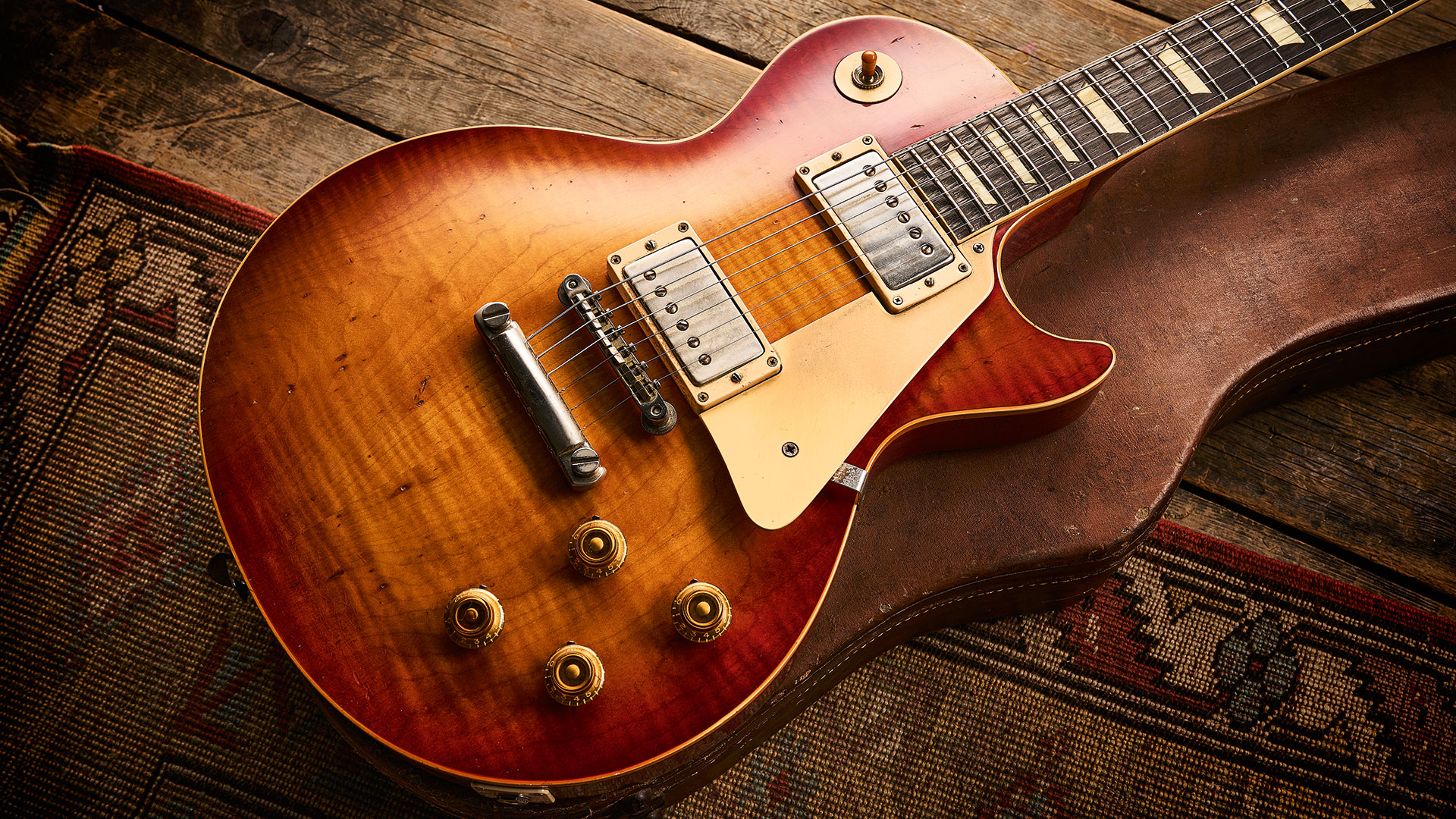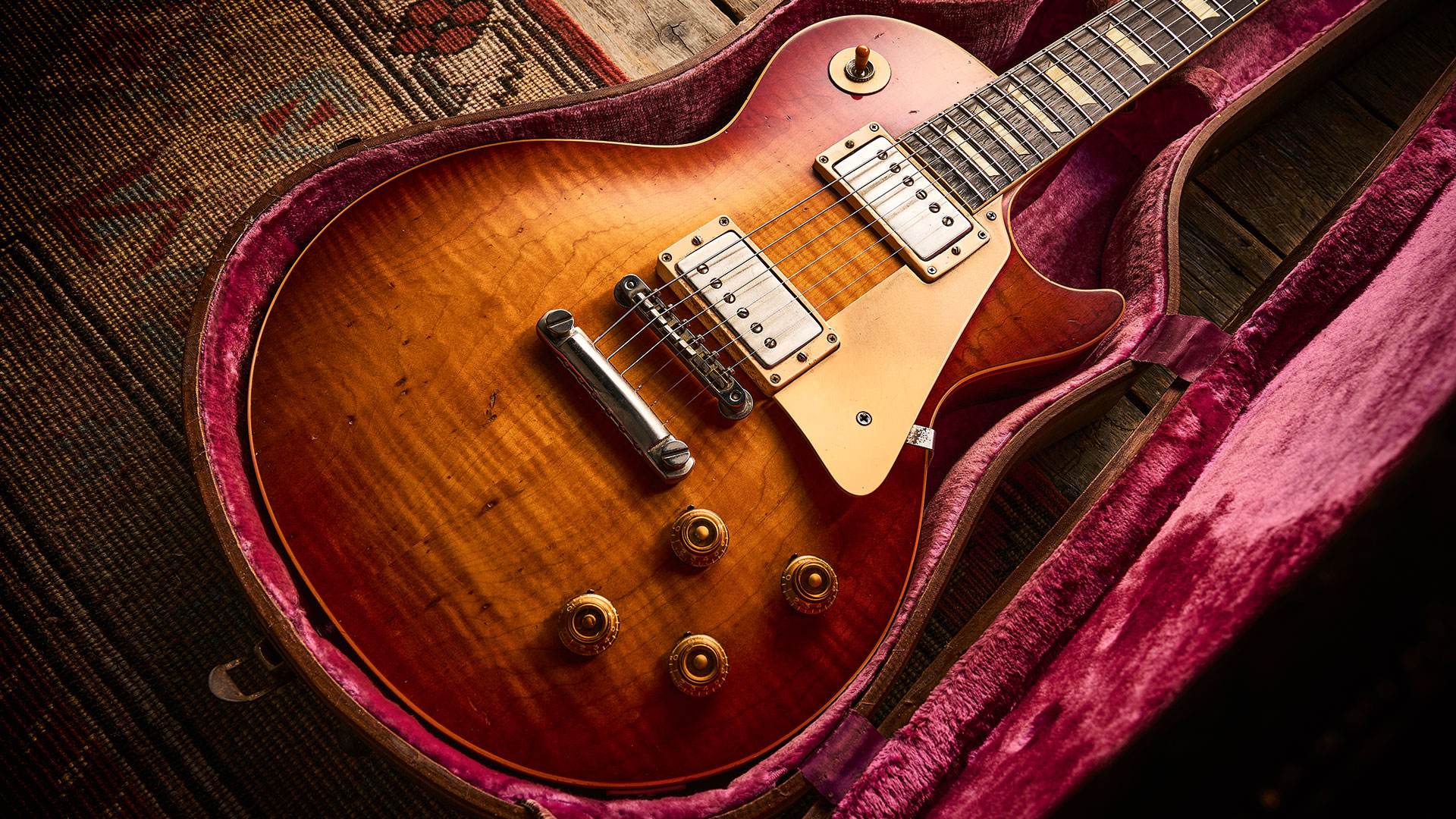“Everyone I know that has bought a ’Burst in the last five years is playing that guitar every single day”: Gibson’s Mark Agnesi debunks the myth that its most valuable builds are kept under glass
The firm’s Head of Brand Experience and former vintage guitar dealer also says it’s time we accept that even a ’Burst needs a re-fret once in a while

All the latest guitar news, interviews, lessons, reviews, deals and more, direct to your inbox!
You are now subscribed
Your newsletter sign-up was successful
Gibson’s Director of Brand Experience Mark Agnesi says he’s here to “debunk the perception” that the most hallowed Gibson Les Paul builds – the so-called ’Bursts’, built between 1958 and 1960 – are being treated solely as museum pieces in 2023.
In a recent interview with Guitar World, the former vintage dealer was asked about the changing profile of the vintage guitar buyer – and took the opportunity to dispel some of the myths about the ultra high-end market.
In particular, he takes issue with the pervasive idea that the guitars are being purchased as investments alone and never actually played.
“I have to be honest: that real top-tier stuff, the real big-dollar stuff, I don't know anybody who's buying that stuff that has no intention of playing it,” comments Agnesi. “Everyone I know that has bought a ’Burst in the last five years is playing that guitar every single day.”
Agnesi is in a strong position to comment. He spent a decade as manager of LA’s legendary vintage retailer Norm’s Rare Guitars, before being brought onboard at Gibson in 2019.
As such, he has played and sold tens of thousands of vintage guitars and still regularly handles some of the world’s most sought-after instruments, whether it’s in his role curating the Vault at the Gibson Garage in Nashville, filming Gibson TV’s VIP Collection videos, or putting together the firm’s Certified Vintage drops.
“I think there's this concept that rich guys are buying these and then tucking them away,” Agnesi tells Guitar World.
All the latest guitar news, interviews, lessons, reviews, deals and more, direct to your inbox!
“That is not at all what I'm seeing. Everyone that I know who owns one, it is the first thing that they pick up in the morning, when they wake up, it's the last thing they touch before they go to bed. People are playing these guitars, especially the expensive, big-dollar ones.
“The people that are spending big money on this stuff are not buying wall hangers... People might have that perception, but I'm here to debunk that perception, because I'm closely involved with a lot of people that own these things. That ain't the case!”
In the same interview, Agnesi also argues that the reverence around certain vintage models has ultimately become self-defeating, particularly when it comes to playability.

“They are not that precious that they can't be played,” says Agnesi. “A lot of these are already 60 years old – they're gonna be okay! People can play them, people can bring them on stage, you can refret them if they need frets.
“When I started in the vintage guitar industry, there was still the [complete] originality thing, and I think we’re starting to turn the corner on that now, which I'm really happy about. Because people don't seem as afraid to refret things because it’s going to affect the value.
“We’ve said this, like: ‘If the thing doesn't play, it's worthless.’ So if you're sitting here with it and you're so worried about the value [dropping] you can't play the damn thing, it's worthless. Put frets on it! There are far worse things you can do to guitars than put a new set of frets on it and have it PLEK-ed, so it plays like a new guitar again.
“To me that's like putting a new set of tires on a vintage car that's been driving around on bald tires. There are certain basic maintenance things that I think the industry has turned the corner on, which is a good thing. Putting new frets on a guitar is perfectly OK.”
That is a relief, given the old GW office ’Burst has just been gathering dust in the corner [j/k, we traded it for a Superstrat in ’81 – Ed]. Regardless, the vintage and high-end market certainly seems to have rocketed over the past few decades.
After all, we are now in the era of the $50k Custom Shop Collector’s Edition Greeny Les Paul replica. In those circumstances, perhaps we should go easy on those players who are being cautious with the case candy.
Keep an eye on the site for our forthcoming full interview with Mark Agnesi, in which he discusses his role in all things Certified Vintage, the firm’s forthcoming big artist plans – and the past, present and future of Gibson’s storied brand.
For more on Certified Vintage, head to Gibson.

Matt is Deputy Editor for GuitarWorld.com. Before that he spent 10 years as a freelance music journalist, interviewing artists for the likes of Total Guitar, Guitarist, Guitar World, MusicRadar, NME.com, DJ Mag and Electronic Sound. In 2020, he launched CreativeMoney.co.uk, which aims to share the ideas that make creative lifestyles more sustainable. He plays guitar, but should not be allowed near your delay pedals.
